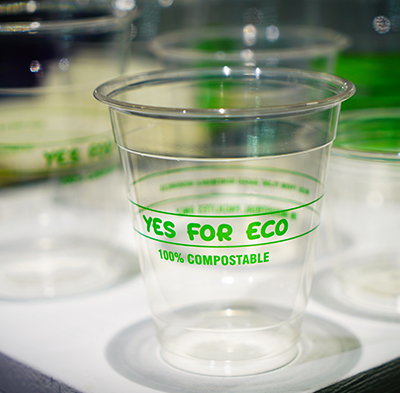
Compostable plastics are derived from renewable materials like corn, potato starches, soy protein, and lactic acid.
The terms “biodegradable” and “compostable” are often used interchangeably, but typically, when customers ask for a biodegradable material, they are looking for a compostable material. Only plastics labeled “compostable” are held to specific regulatory standards. Compostable materials biodegrade within a specified period of time and leave no toxic residue in the soil. Products labeled “biodegradable,” on the other hand, have no time limits on their decomposition, may require specific environmental factors to begin degrading, and may leave residues or particulates behind.
En los Estados Unidos, la Comisión Federal de Comercio (FTC, por sus siglas en inglés) requiere que las empresas que comercializan sus productos como compostables presenten evidencia científica fiable de que todos los materiales de los que se compone el producto o el envase se descompondrán o se volverán parte de un compost utilizable, en la misma cantidad de tiempo que los materiales con los que está siendo compostado. The FTC uses the internationally-recognized ASTM D6400 standard specification for the labeling of plastics designed to be aerobically composted in municipal or industrial facilities.
Lea nuestro artículo de blog: Biodegradable y compostable: ¿cuál es la diferencia?
Lea nuestro Descargo de sostenibilidad